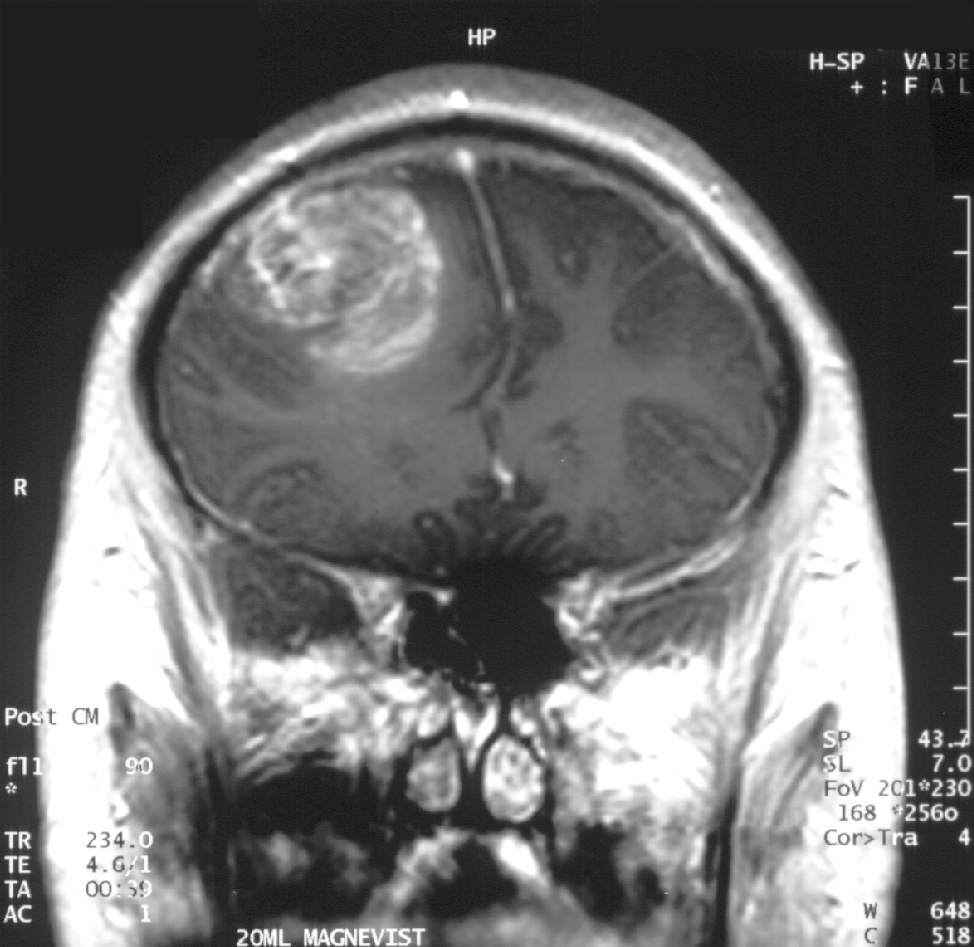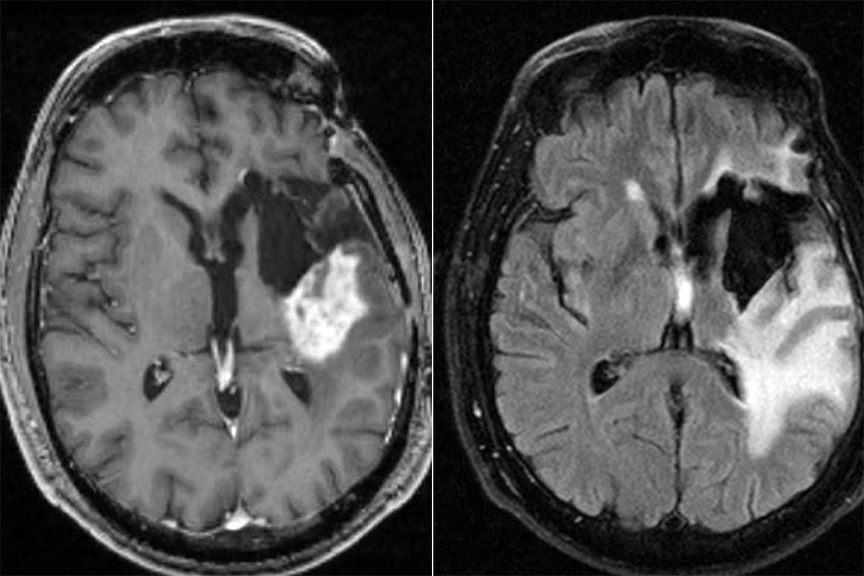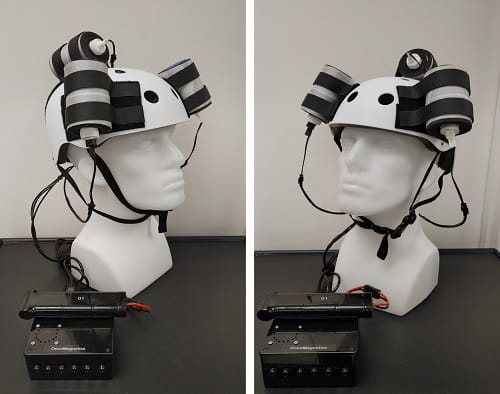Wednesday, May 25, 2022
Breast cancer drug found to halt brain tumor recurrence
CANCER DIGEST – May 25, 2022 – Researchers have identified a drug that slows the growth of the most aggressive types of brain tumors in both mouse models and in off-label use in patients who had no other treatment options, suggesting clinical trials should be considered for the drug.
In addition, the researchers have discovered a better way to analyze such tumors to more precisely identify which of these types of tumors will respond to the drug.
CANCER DIGEST – May 25, 2022 – Researchers have identified a drug that slows the growth of the most aggressive types of brain tumors in both mouse models and in off-label use in patients who had no other treatment options, suggesting clinical trials should be considered for the drug.
In addition, the researchers have discovered a better way to analyze such tumors to more precisely identify which of these types of tumors will respond to the drug.
Saturday, January 1, 2022
AIDS drugs may be useful in treating low-grade brain tumors

Photo Credit Plymouth University
CANCER DIGEST – Jan. 1, 2022 – Drugs already approved to treat HIV/AIDS may be effective in blocking common forms of brain tumors from developing into cancer, new research shows.
A study led by Drs. Sylwia Ammoun and Rober Belshaw at the Brain Tumor Research Centre at the University of Plymouth found that specific sections of DNA that contain genes that produce proteins, called HERV-K, that play a key role in tumor development. The results were published in the December 2021 journal Cancer Research.
 |
| Photo Credit Plymouth University |
A study led by Drs. Sylwia Ammoun and Rober Belshaw at the Brain Tumor Research Centre at the University of Plymouth found that specific sections of DNA that contain genes that produce proteins, called HERV-K, that play a key role in tumor development. The results were published in the December 2021 journal Cancer Research.
Saturday, December 4, 2021
New biomarker could boost survival in 30 percent of brain cancer patients

MRI of glioblastoma – photo credit Wikipedia
CANCER DIGEST – Dec. 4, 2021 –Clinical research is painstakingly incremental with many clinical trials that fail to show an overall advance in survival, but instead identify small subsets of patients who to gain a significant benefit from a particular therapeutic approach or a new drug.
In a recent clinical trial of immunotherapy for glioblastoma, the most common and deadly form of brain cancer, there was no overall survival benefit shown in the group of patients treated, however, the researchers found that a subset of the patients did show a strong response and long-term survival.
 |
| MRI of glioblastoma – photo credit Wikipedia |
In a recent clinical trial of immunotherapy for glioblastoma, the most common and deadly form of brain cancer, there was no overall survival benefit shown in the group of patients treated, however, the researchers found that a subset of the patients did show a strong response and long-term survival.
Saturday, July 24, 2021
Electromagnetic waves successfully shrink cancerous brain tumor
CANCER DIGEST – July 24, 2021 – A brain cancer patient who had previously undergone surgery, chemotherapy and an experimental gene therapy to no avail, achieved a 31% reduction in his tumor through use a new therapy, called oncomagnetics that bathes the tumor in electromagnetic waves.
The case study published in the journal Frontiers in Oncology by researchers at Houston Methodist Neurological Institute showed the promising therapy worked as promised in pre-clinical studies. A single case study is a long way from becoming a treatment option that can be offered to others, but it does show that the treatment was effective in a human subject.
CANCER DIGEST – July 24, 2021 – A brain cancer patient who had previously undergone surgery, chemotherapy and an experimental gene therapy to no avail, achieved a 31% reduction in his tumor through use a new therapy, called oncomagnetics that bathes the tumor in electromagnetic waves.
Sunday, April 4, 2021
Morning chemo may boost survival for brain cancer patients

Photo credit – Washington University School of Medicine
CANCER DIGEST – April 4, 2021 – Switching treatment to mornings may add months of survival to patients treated for an aggressive form of brain cancer, a new study shows.
The study involved a look back at the treatment of 166 patients treated for glioblastoma at Washington University School of Medicine. The treatments included surgery, chemoradiation and a chemotherapy regimen using Temozolomide (TMZ).
 |
| Photo credit – Washington University School of Medicine |
The study involved a look back at the treatment of 166 patients treated for glioblastoma at Washington University School of Medicine. The treatments included surgery, chemoradiation and a chemotherapy regimen using Temozolomide (TMZ).
Saturday, October 24, 2020
Promising new blood test for early brain cancer
CANCER DIGEST – Oct. 24, 2020 – Another blood test, sometimes called liquid biopsy has shown promise in detecting and monitoring cancer, this time the test accurately identifies the most common type of brain tumor early.
The researchers at the Massachusetts General Hospital (MGH) compared blood samples from patients with gliomas with biopsied tumor tissue taken from the same patients.
CANCER DIGEST – Oct. 24, 2020 – Another blood test, sometimes called liquid biopsy has shown promise in detecting and monitoring cancer, this time the test accurately identifies the most common type of brain tumor early.
The researchers at the Massachusetts General Hospital (MGH) compared blood samples from patients with gliomas with biopsied tumor tissue taken from the same patients.
The researchers at the Massachusetts General Hospital (MGH) compared blood samples from patients with gliomas with biopsied tumor tissue taken from the same patients.
Tuesday, February 10, 2015
Gleevec for Glioblastoma
CANCER DIGEST – Feb. 10, 2015 – Two patients with a lethal form of brain cancer treated with a new approach that targets a particular protein had their tumors stop growing for 115 and 134 days, suggesting the approach could advance survival of the cancer a new study in the January 2015 journal Clinical Cancer Research shows.
The approach is based on the principle behind the development of Gleevec (imatinib mesylate) or the “leukemia pill” that has been successful in halting chronic myeloid leukemia in some patients. Gleevec acts on a abnormal fusion of two proteins that fuel tumor growth.
0 comments
Sunday, July 6, 2014
Tool adapted to surgery may improve brain cancer surgery
 |
| The Purdue-designed mass spectrometer to help guide brain surgery. (Photo courtesy of Brigham and Women’s Hospital) |
CANCER DIGEST – July 6, 2014 – A new tool that sprays a microscopic stream of charged solvent onto a brain tumor and surrounding tissue may help brain surgeons more precisely remove cancerous tissue during surgery, say researchers developing the tool at Purdue University and surgeons at Brigham and Women’s Hospital.
The tool uses a technique called mass spectrometry that can identify molecules based on mass, and produces a color-coded image that reveals the location, type and concentration of tumor cells. The tool had previously been shown to accurately identify the cancer type, grade and tumor margins of specimens removed during surgery based on an evaluation of the distribution and amounts of fatty substances called lipids within the tissue.
R. Graham Cooks, the Purdue professor who co-led the project said in a press release, that brain tumor tissue looks very similar to healthy brain tissue, making it is very difficult to determine where the tumor ends and the normal tissue begins. The molecular information provided by the tool can help surgeons precisely and more thoroughly remove the cancer.
The study will be published in an upcoming issue of the Proceedings of the National Academy of Sciences and is published online.




